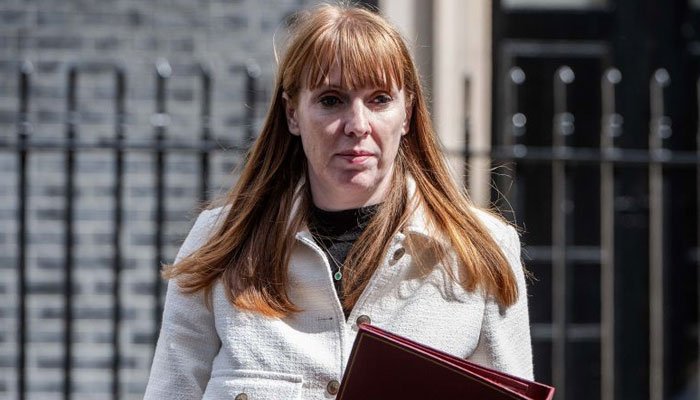UK Deputy PM Rayner Quits: Here’s why! British Deputy Prime Minister Angela Rayner resigned on Friday after admitting she underpaid property tax on a new home. Her departure is a serious blow to Prime Minister Keir Starmer, who had earlier defended her.
Earlier, Keir Starmer enters power with one of the longest lists of problems ever to face an incoming prime minister and few resources to deal with them – a situation that could curtail any “honeymoon period” offered by the British people.
In her resignation letter, Rayner wrote:
“I deeply regret my decision not to seek additional specialist tax advice… I take full responsibility for this mistake.”

She becomes the eighth minister to leave Starmer’s cabinet — and the most senior so far.
Starmer Responds Amid Political Pressure
Starmer said he was “very sorry” that the government’s work had come to an end in this way. Still, he said Rayner had made the right decision.
Rayner’s resignation follows Labour’s recent election defeat to populist Reform UK, which has already weakened Starmer’s position. Her exit adds to the perception of instability in his team.
Background of the Tax Issue
Rayner had set up a trust for her son, who lives with lifelong disabilities. She sold part of her family home in northern England to buy an apartment in Hove, in the south.
Believing the property wouldn’t qualify as a second home, she paid the lower rate of tax. Later, after legal review, she admitted the error and pledged to pay the remaining tax.
On Wednesday, Rayner referred herself to the independent ministerial standards adviser, taking personal responsibility for the mistake.
A Big Loss for Starmer
Rayner was not only a key figure in Labour’s leadership but also seen as a bridge between the party’s left and centre. Her personal story — rising from a working-class teenage mother to Deputy PM — made her relatable to many voters.
She was often mentioned as a potential successor to Starmer, and her broader public appeal made her an asset.
Labour Faces Growing Challenges
Rayner’s resignation is part of a broader trend. Eight ministers have now left Starmer’s team — five due to personal or ethical misconduct. This is the highest number of resignations outside a reshuffle for any British PM at the start of a term since 1979.
By comparison, Boris Johnson had fewer early departures, even before his own government became mired in COVID rule-breaking scandals.
What’s Next for Starmer?

Starmer had hoped to reset his administration with a Downing Street reshuffle after the summer break. He wanted to focus on improving economic policy and preparing for a tough budget later this year.
However, that plan has been disrupted. Beyond the Rayner scandal, Nigel Farage has accused Starmer of suppressing free speech, adding to the political pressure.
With a budget looming and Farage’s Reform UK gaining traction, Starmer faces a critical few months ahead.







